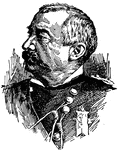Clipart tagged: ‘Army of the Potomac’
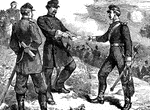
George McClellan at Battle of Antietam
George Brinton McClellan (December 3, 1826 – October 29, 1885) was a major general during the…
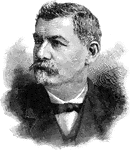
General George B. McClellan
General George B. McClellan (1826 - 1885) was a major general during the Civil War. He is most known…
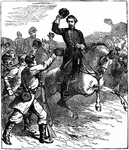
George McClellan
George Brinton McClellan (December 3, 1826 – October 29, 1885) was a major general during the…
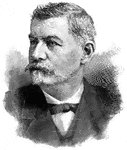
Major-General George B. McClellan
George Brinton McClellan (December 3, 1826 – October 29, 1885) was a major general during the…

Army of the Potomac
"Advance of the Army of the Potomac. Occupation of Winchester, VA., and the abandoned Confederate Fortifications,…
